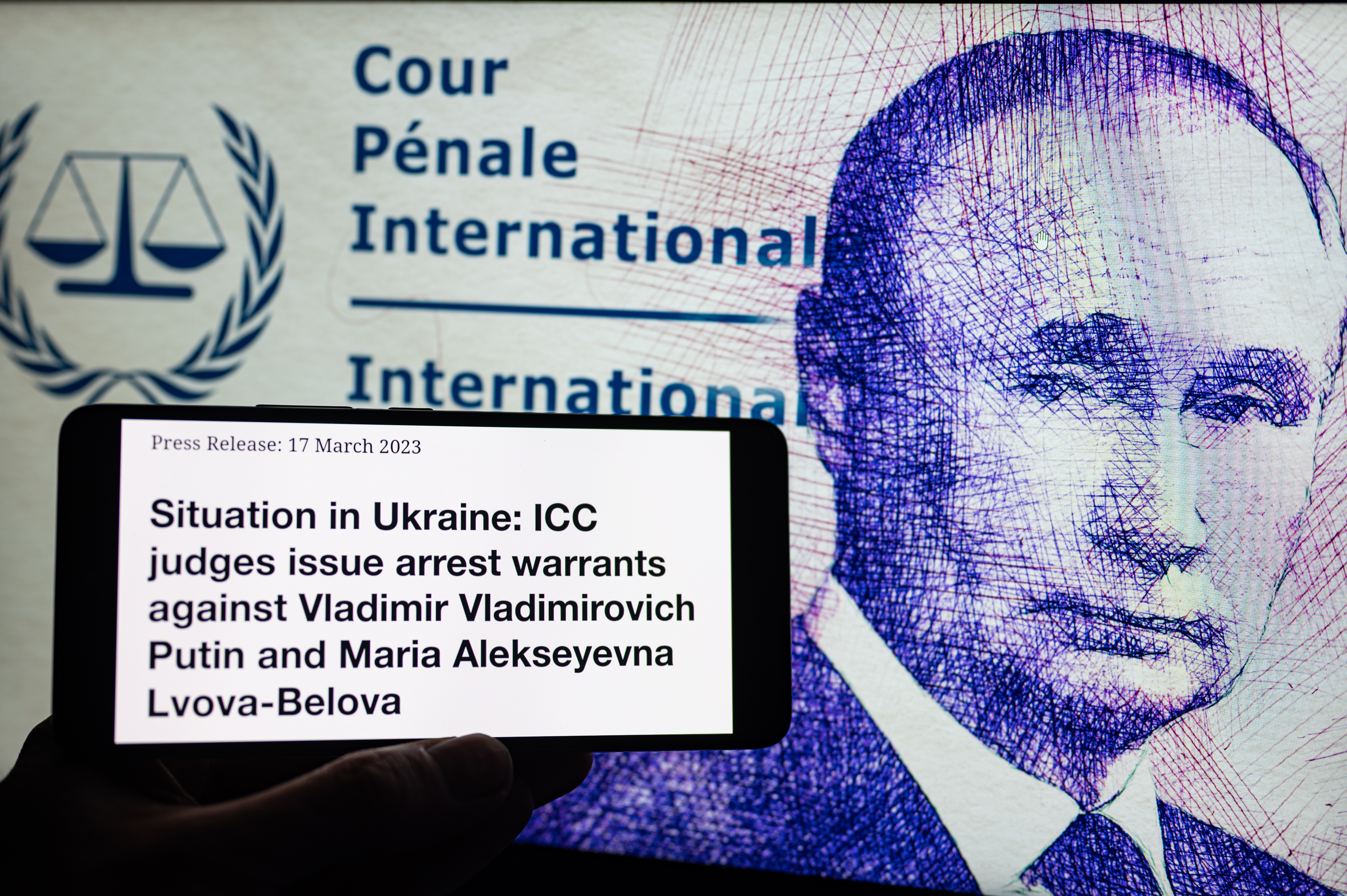International Criminal Court issues warrant for Russian President Vladimir Putin


A free daily email with the biggest news stories of the day – and the best features from TheWeek.com
You are now subscribed
Your newsletter sign-up was successful
The International Criminal Court in the Hauge, Netherlands, has called for the arrest and prosecution of Russian President Vladimir Putin for his role in allegedly abducting Ukranian children during Russia's ongoing invasion of that country.
In an arrest warrant issued Friday, Putin and fellow Russian government official Maria Lvova-Belova are accused of "the war crime of unlawful deportation of population and that of unlawful transfer of population from occupied areas of Ukraine to the Russian Federation, in prejudice of Ukrainian children," according to a press release from the ICC.
Noting that the exact contents of the warrant are secret "to protect victims," ICC President Piotr Hofmański said in a brief video message that the decision to publicize the warrants was made 'in the interest of justice, and to prevent the commission of future crimes."
The Week
Escape your echo chamber. Get the facts behind the news, plus analysis from multiple perspectives.

Sign up for The Week's Free Newsletters
From our morning news briefing to a weekly Good News Newsletter, get the best of The Week delivered directly to your inbox.
From our morning news briefing to a weekly Good News Newsletter, get the best of The Week delivered directly to your inbox.

While Ukrainian Parliamentary Speaker Ruslan Stefanchuk hailed news of the arrest warrants as "a big step in restoring world justice," Russian government officials have dismissed the ICC's decision as having "no meaning for our country, including from a legal point of view."
"Russia is not a party to the Rome Statute of the International Criminal Court and bears no obligations under it," Russian Foreign Ministry spokeswoman Maria Zakharova said. "Russia is not cooperating with this body."
According to an Oct. 2022 New York Times report, "thousands of Ukrainian children have been transferred to Russia" over the course of its invasion effort, with Russian media championing the intake of Ukrainian youth by broadcasting images of "officials offer[ing] teddy bears to new arrivals, who are portrayed as abandoned children being rescued from war." Noting that although "many of the children did come from orphanages and group homes" in Ukraine, the Times' reporting found that Russian authorities also "took children whose relatives or guardians want them back."
Crucially, although the ICC can issue warrants for heads of state accused of war crimes and crimes against humanity, it has no enforcement mechanism for such demands, and instead must rely on member states to arrest and detain the accused if that foreign leader enters their territory.
A free daily email with the biggest news stories of the day – and the best features from TheWeek.com
A United Nations panel also found separate evidence that Russian forces may have committed war crimes during the invasion of Ukraine, specifically by attacking "energy-related infrastructure" and by torturing prisoners.
In remarks posted to his Telegram channel, Ukraine's Volodymyr Zelensky laid blame for alleged Russian war crimes directly at the feet of Putin, saying "It would be impossible to carry out such a criminal operation without the order of the top leader of the terrorist state."
Rafi Schwartz has worked as a politics writer at The Week since 2022, where he covers elections, Congress and the White House. He was previously a contributing writer with Mic focusing largely on politics, a senior writer with Splinter News, a staff writer for Fusion's news lab, and the managing editor of Heeb Magazine, a Jewish life and culture publication. Rafi's work has appeared in Rolling Stone, GOOD and The Forward, among others.
